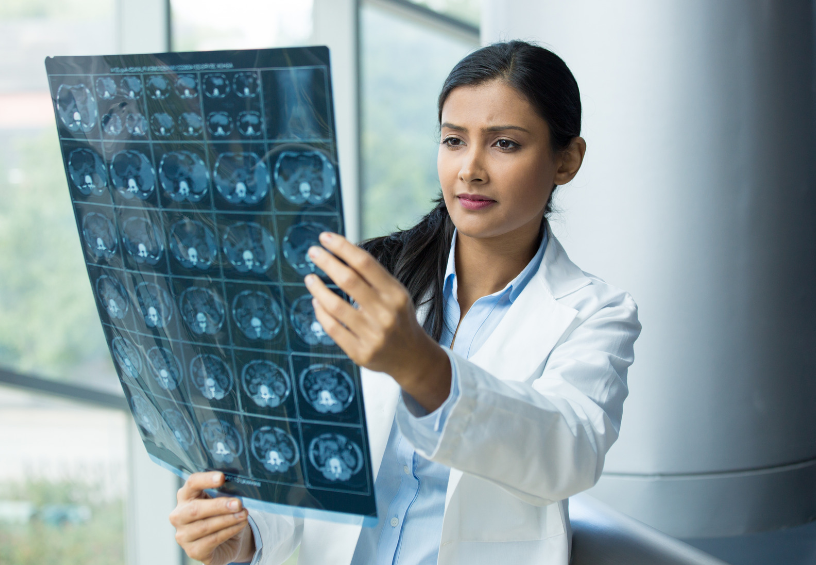Medical imaging plays a crucial role in modern healthcare, providing essential insights into the human body that aid in diagnosis and treatment. Medical imaging centres are specialised facilities that offer a variety of imaging services, allowing healthcare providers to accurately assess patients’ conditions. This blog will explore the range of services offered by medical imaging centres, including X-rays, MRIs, CT scans, and ultrasounds, highlighting their significance in the diagnostic process.
Understanding Medical Imaging
Definition of Medical Imaging
Medical imaging refers to the techniques and processes used to create images of the body for clinical purposes. At a medical imaging centre, various technologies are employed to visualise internal structures and functions, enabling healthcare professionals to make informed decisions about diagnosis and treatment.
Importance of Medical Imaging in Diagnosis
The significance of medical imaging in diagnosing medical conditions cannot be overstated. Medical imaging centres utilise advanced imaging techniques to provide clear and detailed images, allowing for early detection of diseases. This efficiency and accuracy are vital for effective patient care and treatment planning.
Types of Medical Imaging Services
X-rays
X-rays are one of the most common imaging services offered at a medical imaging centre. They work by passing radiation through the body to create images of internal structures. X-rays are widely used for detecting fractures, assessing dental issues, and examining the chest for conditions such as pneumonia. While X-rays are invaluable, they also come with limitations, including radiation exposure and the inability to assess soft tissues adequately.
Magnetic Resonance Imaging (MRI)
MRI is a sophisticated imaging technique available at medical imaging centres, providing detailed images of soft tissues and organs. This technology uses powerful magnets and radio waves to generate images, making it particularly useful for assessing brain injuries, joint conditions, and spinal disorders. One of the key benefits of MRI is that it does not involve ionising radiation, making it a safer option for many patients. However, the length of MRI scans and the need for patients to remain still can be challenges.
Computed Tomography (CT) Scans
CT scans, or computed tomography scans, are another vital service offered by medical imaging centres. CT scans combine X-ray images taken from different angles and use computer processing to create cross-sectional images of the body. They are particularly effective in diagnosing complex conditions, such as internal injuries, cancers, and diseases affecting the organs. The speed and detail provided by CT scans make them a popular choice among healthcare providers for urgent assessments.
Ultrasound Imaging
Ultrasound imaging is a safe and versatile service available at medical imaging centres, commonly used for prenatal imaging and organ assessments. This technology uses sound waves to create images of the body’s internal structures in real time. The benefits of ultrasound include its safety, as it does not involve radiation, and its ability to provide immediate results, which is particularly valuable in emergency situations.
Additional Imaging Services
Mammography
Mammography is a specialised service provided by many medical imaging centres, focusing on breast health. This technique is crucial for early detection of breast cancer and involves taking X-ray images of the breast. Regular mammograms can significantly increase the chances of detecting breast cancer at an early stage when it is most treatable.
Nuclear Medicine
Nuclear medicine is another advanced service available at medical imaging centres, using small amounts of radioactive material to diagnose and treat diseases. This technique is beneficial for assessing conditions such as thyroid disorders, certain cancers, and bone diseases. Nuclear medicine allows for functional imaging, providing insights into how organs and tissues are functioning.
Fluoroscopy
Fluoroscopy is an imaging service offered by medical imaging centres that allows for real-time visualisation of the body’s internal structures. This technique is often used to observe the gastrointestinal tract, as it can provide dynamic images during procedures such as barium swallows or enemas. The ability to see movement in real time makes fluoroscopy a valuable tool for diagnosing various conditions.
The Role of Medical Imaging Centres
Integration of Services
Medical imaging centres play a vital role in integrating various diagnostic services under one roof. By offering a comprehensive range of imaging techniques, these centres streamline the diagnostic process, enabling healthcare providers to obtain all necessary information in one location. This integration is essential for providing efficient and effective patient care.
Patient Experience and Comfort
Patient care is a priority for medical imaging centres. These facilities are designed to ensure that patients feel comfortable and supported throughout their imaging experience. From the moment a patient arrives for their appointment, the staff is dedicated to guiding them through the process, addressing any concerns, and ensuring a smooth experience.
Technology and Innovation
Medical imaging centres continually embrace advancements in technology and innovation. By investing in state-of-the-art equipment, these centres can offer the latest imaging techniques and improve diagnostic accuracy. This commitment to adopting new technologies enhances the quality of care provided to patients and keeps medical imaging centres at the forefront of healthcare.
Choosing the Right Imaging Centre
Factors to Consider
When selecting a medical imaging centre, several factors should be considered. Location, technology, and accreditations are crucial in ensuring that patients receive high-quality care. Additionally, researching patient reviews can provide valuable insights into the experiences of others at a particular medical imaging centre.
Consultation and Referrals
It is essential for patients to consult their healthcare providers for recommendations on the best medical imaging centre for their specific needs. Referrals can help patients navigate their options and ensure they choose a facility that meets their requirements for both services and comfort.
Takeaway
Medical imaging centres are essential components of the healthcare system, offering a wide range of services that contribute significantly to diagnosing and treating medical conditions. From X-rays to MRIs and beyond, these centres provide valuable insights that empower healthcare professionals to make informed decisions. By understanding the variety of services available, patients can better navigate their healthcare journeys and receive the care they need.











